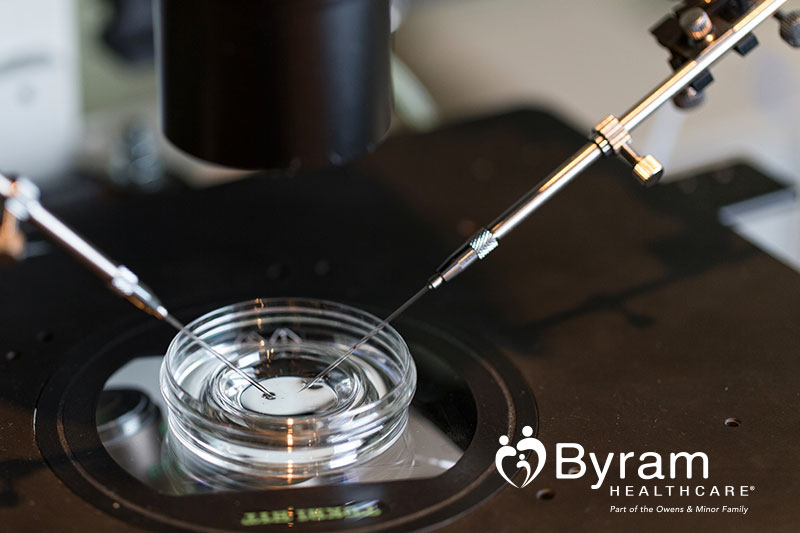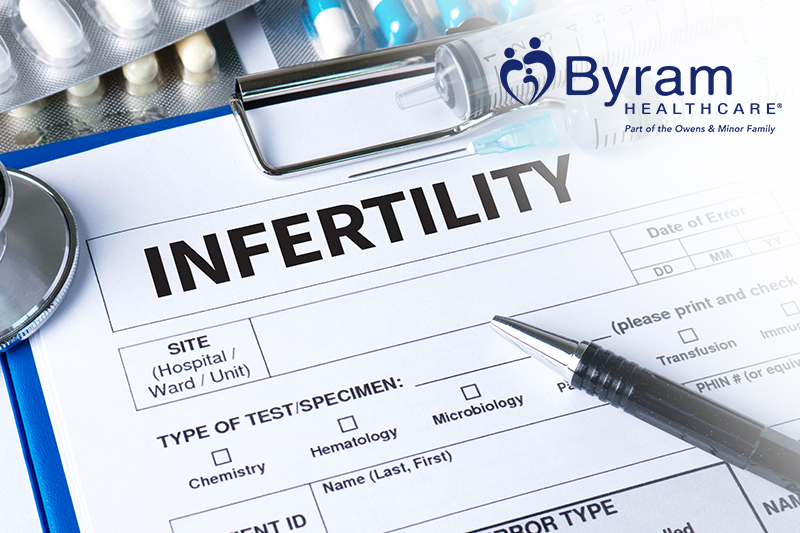Trouble Getting Pregnant? IVF, IUI, ICI, and IVI Can Help
While many people assume that starting a family is easy, it isn’t always that way. Some couples struggle to get pregnant for years, lose hope, and eventually accept that they will never have the family they dreamed of. This doesn’t have to be the case. If you’re having trouble getting pregnant, there are a number of things that you can do using assisted reproductive technology. In this article, we’ll explore a few of the things to try if you’re having trouble getting pregnant, including in vitro fertilization (IVF), intrauterine insemination (IUI), intracervical insemination (ICI), and intravaginal insemination (IVI).
Possible Reasons You’re Not Getting Pregnant
If you’re having a hard time getting pregnant, the first question you’re going to ask yourself is, “why is this happening?” We’re here to tell you not to worry. Don’t create unnecessary stress, as there are a number of different reasons you’re not getting pregnant. You shouldn’t immediately jump to infertility. Instead, consider the following.
Time and Timing
How long have you been trying to conceive? A lot of people assume that as soon as you ditch the birth control, you’ll get pregnant. This isn’t always true. Timing is everything. In fact, about 80% of couples won’t conceive until they’ve been trying for 6 months and close to 90% will be pregnant after 12 continuous months of trying. These numbers aren’t based off of couples randomly deciding to have sex, they’re based off of meticulously timed sex—a.k.a. sex that was planned to happen during ovulation.
If you’re not having sex during ovulation, you won’t get pregnant. If you experience irregular periods, you will likely also experience ovulation problems, which will make it very difficult for conception. Talk to your doctor if you experience irregular periods and are trying to get pregnant.
Fallopian Tube Problems, Uterine Structural Problems, and Endometriosis
Even if you have regular ovulation cycles, there could be another underlying issue that’s making it difficult to conceive. Fallopian tube problems, uterine structural problems, and endometriosis account for a majority of female infertility issues outside of irregular ovulation. Schedule an appointment with your doctor if you’re struggling to conceive to make sure that you’re not suffering from one of these problems to learn what you can do to overcome them.
Age
The older you get, the harder it’s going to be to get pregnant. This isn’t because you’ve run out of eggs, but the quality of your eggs and his sperm decreases every year you get older. Talk to your doctor about age-related fertility issues to learn more about how to increase the odds of pregnancy after 35.
Medical Problems
Certain underlying medical problems—such as autoimmune diseases, thyroid imbalances, and more—can lead to infertility. To rule these out, make sure that you have a full workup with your doctor. It might be as easy as switching medications, but you will need to work with your doctor to figure it out.
Infertility
Finally, if either you or your partner is infertile, you won’t be able to get pregnant naturally. If you go to a doctor and express trouble getting pregnant, make sure that both of you are tested for fertility. Male infertility rarely has any signs or symptoms and could be the sole reason that you’re efforts are unsuccessful. Even if you get tested and find out that you’re infertile, there are a number of things you can do to increase your chances of pregnancy.
What is In Vitro Fertilization (IVF)?

In vitro fertilization, or IVF, is one of the most well known types of fertility treatments that couples use. IVF helps a couple with the fertilization process, embryo development, and implantation, to increase the chances of getting pregnant.
It begins with medication. You’ll need to take a specific medication that will help your eggs mature and become ready for fertilization. Once ready, your doctor will remove the eggs and mix them with sperm in a lab so the sperm can fertilize the eggs. This creates embryos, or fertilized eggs, ready for implantation. Once a number of embryos are created, they are inserted directly into the uterus to boost the chances of a successful implantation. If any of the embryos attach to the lining of your uterus, the natural process of pregnancy follows.
In vitro fertilization is a long process and may take many months, with many different tries, before a successful pregnancy. With that being said, it’s important to remember that everyone is different and just because IVF worked for someone you know, it doesn’t necessarily mean it will work for you. You can read more about IVF here. There are also a few risks and side effects from IVF. Some of them include bloating, cramping, mood swings, tenderness, headaches, or infection. Talk to your doctor to learn more about these side effects and if you have any questions or concerns as to how you might respond.
While usually not at the forefront of concerns when trying to start a family, IVF is an expensive process so you should be prepared to handle the finances. There are some states that cover some of the costs, but many insurance plans do not provide coverage for fertility treatments.
What is IUI?
Intrauterine insemination (IUI) is another fertility treatment that is achieved either with or without fertility drugs. IUI—more commonly known as artificial insemination—is instead the act of transferring a sample of specially “washed” semen into the uterus using a small catheter. IUI is one of the easier fertility treatments available and it costs significantly less than IVF. IUI, or AI, works the best for women who have hostile cervical mucus, unexplained infertility, or a partner suffering from male infertility. It’s also the method used if a woman is going to use a sperm donor. To learn more about IUI, check out this article from the American Pregnancy Association.
What is ICI?
Intracervical insemination (ICI) is an older form of artificial insemination that is similar to IUI. The sperm is placed directly into a woman’s reproductive tract to help boost the chances of fertilization and pregnancy. The difference between ICI and IUI is that in ICI the sperm is placed closer to the cervix rather than the uterus. This means that the sperm will need to travel into the uterus and to the fallopian tubes on their own, which may lower the chances of a successful pregnancy in women who are struggling. However, because of this placement, ICI costs lower than IUI.
What is IVI?
Finally there’s, IVI, or intravaginal insemination. IVI is again similar to IUI and ICI in that it places sperm into a woman’s reproductive organs. The main difference here is that IVI is done in the same manner that sexual intercourse results in. Sperm is placed into the vagina exactly like it is during sex, which makes it a less desirable option for those struggling to conceive naturally. Most people that choose IVI are those who are using a sperm donor and aren’t suffering from fertility issues.
Conclusion
While these fertility treatments are meant to act as assistance to natural conception, they won’t work for everyone. Unfortunately, sometimes a couple won’t be able to conceive. If this happens, talk to your doctor about alternative methods to starting a family. There are hundreds of thousands of children that are living without a family and waiting to be adopted. Even if you’re not at this stage yet and are working through the fertility treatments, make sure that you have a good support system in place. Fertility treatments are difficult, both emotionally and physically. Because of this, we recommend finding a good emotional support group of women who are either working through fertility treatment themselves or have done so in the past. When trying to get pregnant, remember that your health matters. Make healthy lifestyle changes will increase your chances at conception and will instill good habits for your future family dynamic. If you have any questions, or want to get tested for fertility, schedule an appointment with your doctor today. For other great pregnancy tips, tricks, and stories, head over to our blog summary page. Don’t forget, when you do conceive, new mothers are eligible to receive an electric breast pump covered by their insurance provider through the Affordable Care Act. Byram carries a wide selection, so you’ll be sure to find something that works for you.
If you’ve struggled with fertility and want to share your story, head over to our Facebook page today. Hearing success stories help keep struggling moms-to-be motivated and hopeful.






